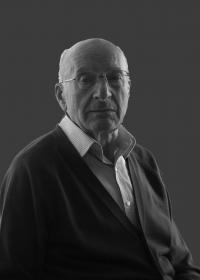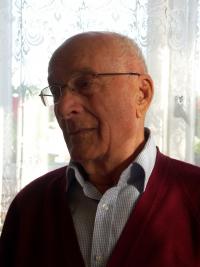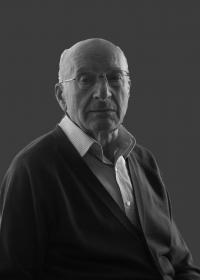There were moments when hope was vanishing

Stáhnout obrázek
Aldo Mantovani was born September 14, 1922 in Ceneselli, in the Rovigo province in Italy as one of four children in a poor worker‘s family. In 1928 the family moved to Pilastri di Bondeno in the Ferrara district. As Aldo recalls, he did not go to school much. When he was eighteen, he was drafted to the army and after his basic military training he was sent to the eastern front in 1942. Aldo Mantovani served in the 9th infantry division Pasubio, in the 80th infantry regiment. He reached the calm front by the Don River in December 1942 where they expected to wait for the attack until spring. However, the Soviet army attacked already on Christmas. Aldo was taken prisoner and for forty days he had to march to a camp near the town Kineshma. In 1945 he was released and after a dramatic journey he returned home. It was difficult to find a job in post-war Italy, and Aldo had a friend who had been working in the kaolin factory in Horní Bříza already for several years. In 1948 he thus went with him to Czechoslovakia to search for work. Aldo had not been issued a passport, and he therefore had to hide at the border, and during his second unsuccessful border crossing from Austria to Czechoslovakia he was arrested and imprisoned. He was released from the prison in České Budějovice shortly after and he then arrived to Horní Bříza without further complications. When the Italian embassy in Prague issued a temporary passport for him, he began working in the kaolin factory. Later he worked in the ceramics factory in Horní Bříza. In 1966 he moved with his wife Vlasta Pašková and their three children to Italy, and they still continue to live there.


